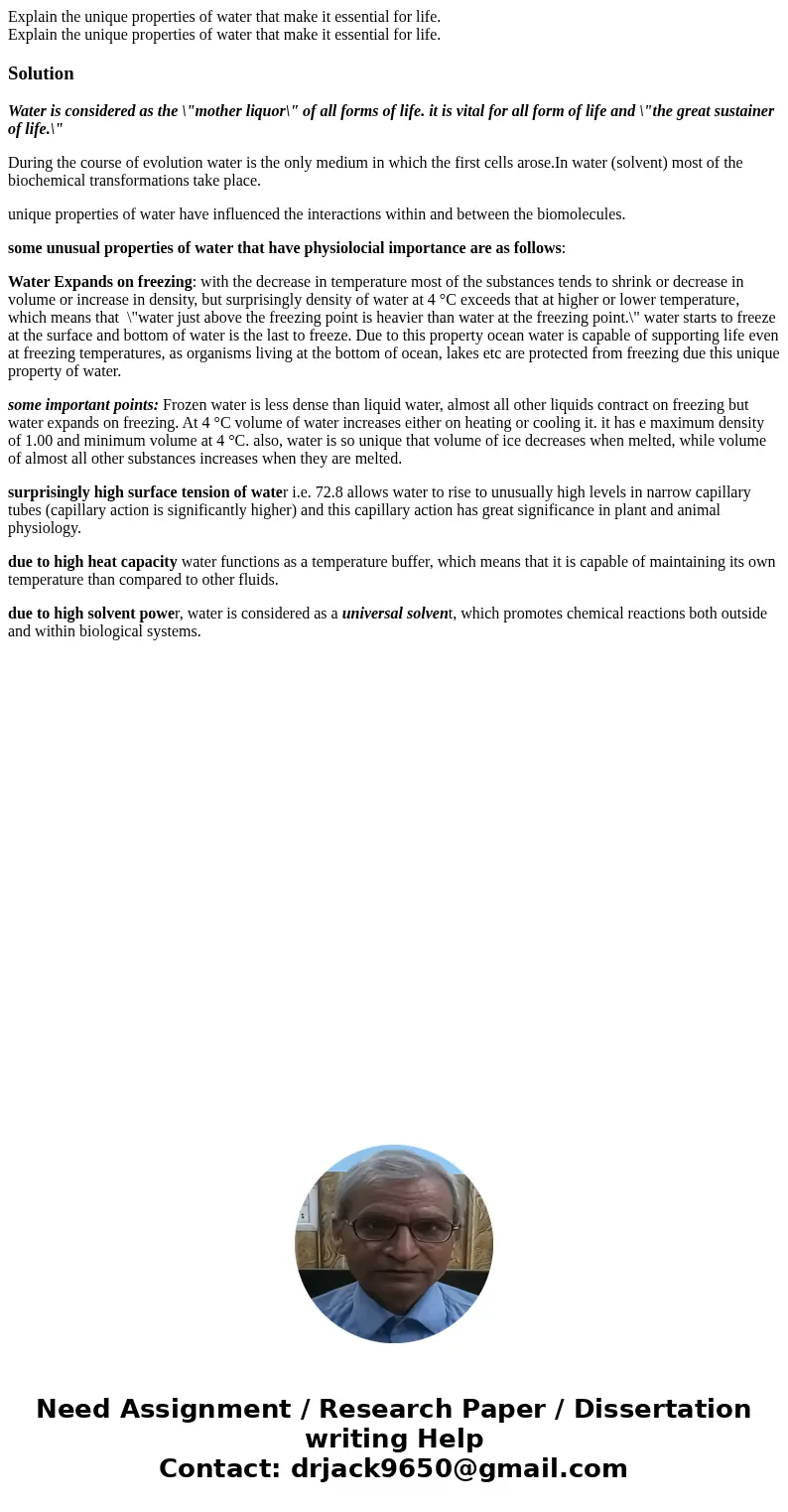Explain the unique properties of water that make it essentia
Solution
Water is considered as the \"mother liquor\" of all forms of life. it is vital for all form of life and \"the great sustainer of life.\"
During the course of evolution water is the only medium in which the first cells arose.In water (solvent) most of the biochemical transformations take place.
unique properties of water have influenced the interactions within and between the biomolecules.
some unusual properties of water that have physiolocial importance are as follows:
Water Expands on freezing: with the decrease in temperature most of the substances tends to shrink or decrease in volume or increase in density, but surprisingly density of water at 4 °C exceeds that at higher or lower temperature, which means that \"water just above the freezing point is heavier than water at the freezing point.\" water starts to freeze at the surface and bottom of water is the last to freeze. Due to this property ocean water is capable of supporting life even at freezing temperatures, as organisms living at the bottom of ocean, lakes etc are protected from freezing due this unique property of water.
some important points: Frozen water is less dense than liquid water, almost all other liquids contract on freezing but water expands on freezing. At 4 °C volume of water increases either on heating or cooling it. it has e maximum density of 1.00 and minimum volume at 4 °C. also, water is so unique that volume of ice decreases when melted, while volume of almost all other substances increases when they are melted.
surprisingly high surface tension of water i.e. 72.8 allows water to rise to unusually high levels in narrow capillary tubes (capillary action is significantly higher) and this capillary action has great significance in plant and animal physiology.
due to high heat capacity water functions as a temperature buffer, which means that it is capable of maintaining its own temperature than compared to other fluids.
due to high solvent power, water is considered as a universal solvent, which promotes chemical reactions both outside and within biological systems.

 Homework Sourse
Homework Sourse